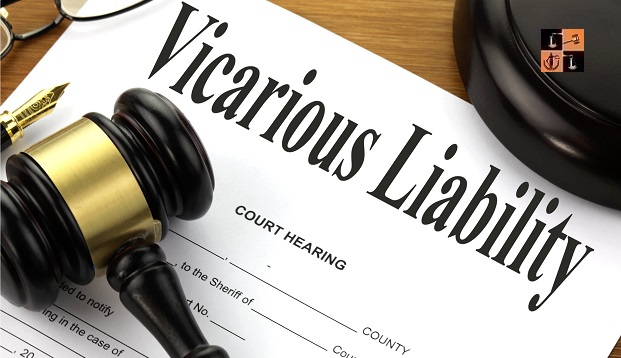On 11th October 2022, the Supreme Court in a division bench consisting of Justice B.R. Gavai and Justice C.T. Ravikumar observed that merely reproducing the words of the section without a clear statement of fact as to how and in what manner a director of the company was responsible for the conduct of the business of the company, would not ipso facto make the director vicariously liable. (Lalankumar Singh & Ors. Vs. State Of Maharashtra)
Facts of the Case:
The Appellants are the Directors of M/s Cachet Pharmaceuticals Private Ltd. CPPL was granted permission to manufacture ‘Hemfer Syrup’ which falls under Schedule C & C(1) to the Drugs & Cosmetics Rules, 1945. On 30.08.2006, the Drug Inspector, Food and Drugs Administration, Beed, Maharashtra, visited the premises of M/s. Priya Agencies at Beed and purchased ‘Hemfer Syrup’, in order to get the drug tested. On 26.02.2007, he got the report stating that the sample was not of standard quality as the content of Cyanocobalamin was less than the permissible limit, i.e., 39% of the label amount. On 29.03.2007, Deputy Manager, QA of CPPL requested the Drug Inspector to send the samples again for analysis. On 10.07.2007, the Learned CJM, Beed received the test report from the Central Drug Laboratory, Calcutta stating therein that the sample was not of standard quality as it did not conform to the accepted limits of Cyanocobalamin content. Against the manufacturer, a complaint was filed before the Ld. Chief Judicial Magistrate, Beed u/s 18(a)(i) read with Sections 16 and 34 of the said Act and punishable u/s 27(d) of the said Act. Summons were issued but appellants filed a Criminal Revision Petition against the summoning order before the learned Sessions Judge, Beed on the ground that there are no specific averments in terms of Section 34 of the said Act as to the role played by the Directors. The same was rejected. Aggrieved by the same. A Criminal Writ Petition was filed before the Bombay HC which was also dismissed. Hence, present appeal.”
Contentions of the Appellants:
The counsel for the Appellants submitted that “Section 34 of the said Act specifically provides that only such person who, at the time of the commission of the offence, was in-charge of, and was responsible to the company for the conduct of the business of the company, as well as the company shall be deemed to be guilty of the offence and shall be liable to be proceeded against. the finished product of the said batch of the drug was analysed by Mr. M.K. Sharma under his supervision. Mr. Naresh Roy (Accused No.10) further informed that he was approved by the Rajasthan FDA as a competent person. Clause 6.1 of Part I of Schedule M specifically provides that the manufacture shall be conducted under the direct supervision of competent technical staff with prescribed qualifications and practical experience. As per clause 6.2 thereof, the head of the Quality Control Laboratory is required to be independent of the manufacturing unit. Unless and until there is a specific averment as to what was the role in the conduct of the business of the company, a person cannot be proceeded against solely on the ground that he was a director of the company and there is no such order which reflects the application of mind of the learned CJM.” Moreover, Rule 76 and its sub-rule (1) and (4), Form 28 and 28B, were referred.
Contentions of the Respondent:
The counsel for the respondent submitted that “perusal of the complaint, and specifically paragraphs 3 and 25 thereof would reveal that there is sufficient compliance of requirement of Section 34 of the said Act. The complaint has to be read as a whole and cannot be read in a piecemeal manner.” The case, U.P. Pollution Control Board vs. Mohan Meakins Ltd. and others and Dinesh B. Patel and others vs. State of Gujarat and another were referred to support his argument that “there is no legal requirement for the trial Court to pass a detailed order while issuing process and the averments made in the complaint are sufficient to proceed against the present appellants, respectively.”
Observations and Judgement of the Court:
The hon’ble court referred to the cases of State of Haryana vs. Brij Lal Mittal and others, S.M.S. Pharmaceuticals Ltd. vs. Neeta Bhalla and another, Pooja Ravinder Devidasani vs. State of Maharashtra and another and, State of NCT of Delhi through Prosecuting Officer, Insecticides, Government of NCT, Delhi vs. Rajiv Khurana and observed that “simply because a person is a director of the company, it does not necessarily mean that he fulfils the twin requirements of Section 34(1) of the said Act so as to make him liable. There is no universal rule that a director of a company is in charge of its everyday affairs. There are no specific averments insofar as the present appellants are concerned. It is further to be noted that the present appellants are neither the managing director nor the whole-time directors of the accused company. in accordance with the provisions of Rule 76 of the said Rules read with Form 28, the Accused Nos. 9 and 10 have specifically been approved by the licensing authority in Form 28. Hence, the complaint is totally lacking the requirement of section 34. No reasons are given therein while coming to the conclusion that there is a prima facie case against the accused. The learned Single Judge of the High Court, based on the record, has presumed that there was an order of issuance of process which is unsustainable in law.”
The appeal was allowed and the order passed by learned Chief Judicial Magistrate, and the order passed by the learned Sessions Judge, were quashed and set aside.
Case: Lalankumar Singh & Ors. Vs. State Of Maharashtra
Citation: Criminal Appeal No. 1757 Of 2022
Bench: Justice B.R. Gavai and Justice C.T. Ravikumar
Date: OCTOBER 11, 2022
Read Judgment @latestlaws.com
Picture Source :


























